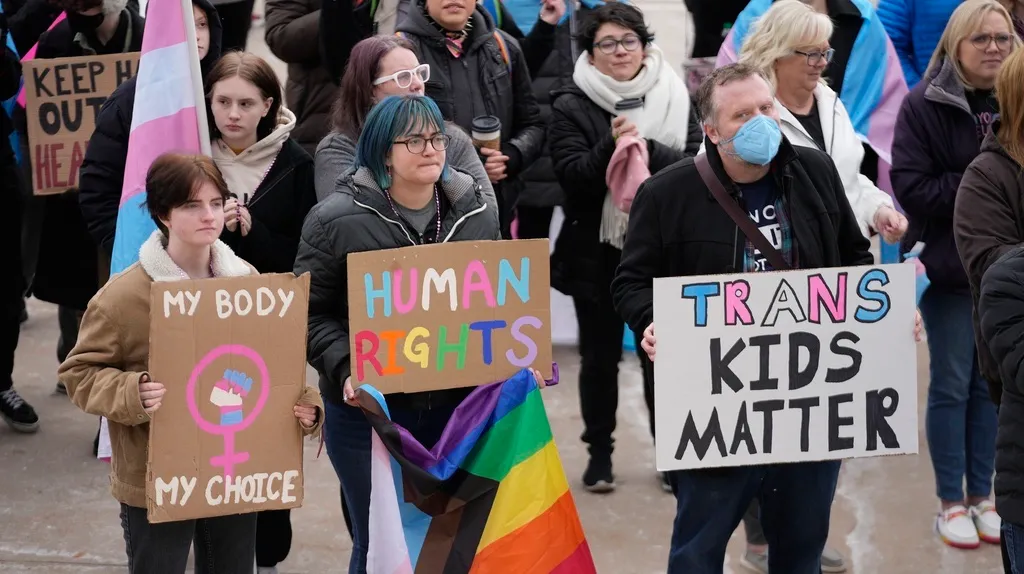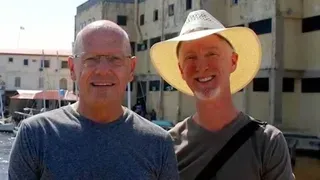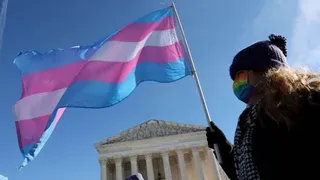October 8, 2010
Ali Forney Center to receive three new federal grants
Winnie McCroy READ TIME: 4 MIN.
The struggle to protect and nurture the city's LGBT youth just became easier with the awarding of three new grants to the Ali Forney Center.
The grants will allow the organization, which was founded in June 2002 to help homeless LGBT teens get off the streets, to expand their medical and mental health services, implement a substance abuse program and hire additional counselors for their street outreach efforts. The additional funding streams will allow Ali Forney to search for a new facility for at-risk teens.
"When they're with us, they are no longer in homes where they are being abused and harassed, and we are able to provide them with an environment where they can feel accepted and safe, and be surrounded by people who are gay and lead decent lives," said executive director Carl Siciliano.
Siciliano named his organization in honor of Ali Forney, a homeless gay teenager who lived on the streets in the 1990s. During his life, he worked to promote HIV prevention, and advocated for the New York Police Department to investigate a series of murders of homeless gay youth he had met. Forney was murdered in Dec. 1997. And his murderer has never been found.
Ali Forney has helped 7,000 teenagers and young people since it opened its door. And while the organization is not a suicide prevention center, Siciliano estimates the group has hospitalized 70 suicidal teens. "What is remarkable in light of what's being going on now is that none of our kids has actually committed suicide," he said. "I think it's the level of care and support we provide, and the sense of community we provide in bringing in openly gay and straight, supportive people. We show them every day that their lives are valuable."
Those who come to the Ali Forney Center have often faced abuse, humiliation and degradation from their families, in their schools and on the streets. These new grants will provide the resources to get these kids off the streets and into healthy lifestyles.
A five-year grant from the Substance Abuse and Mental Health Services Administration (SAMSHA) will provide Ali Forney $350,000 a year to expand its medical and mental health services, and enable them to implement a substance abuse program for their clients.
A three-year grant from the Department of Justice's Office of Violence Against Women will dedicate $83,000 a year for counseling for youth subjected to domestic violence, which Siciliano said, "is a huge problem with these kids".
"They are abused because they're gay, can't take the abuse, and have to leave their homes," he added.
The final three-year grant is from the Federal Administration for Children and Families, which will provide Ali Forney $150,000 a year to expand their street outreach efforts.
"These funds better help us implement our mission," said Siciliano. "They allow us to provide more hours of medical and psychological health services, and to build on what we had before. We had a substance abuse counselor in the past, which we had to let go because of budget cuts in the past two years."
Siciliano's long-term goal is to expand the Ali Forney's drop-in center to 24 hours a day, but the grants will also allow the organization to modify its budget and begin the search for a new facility. (Mayor Michael Bloomberg's Commission for LGBT Runaway and Homeless youth made this recommendation in June.)
"We have 150 kids on a waiting list every night trying to get into housing, who are in unsafe or dangerous shelters, or out in the streets," said Siciliano. "This funding will help keep a lot of kids safer."
In an effort to secure a new facility, Ali Forney is currently applying for New York State grants through the Homeless Housing Assistance Program (HHAP). And on Thursday, Oct. 7, the organization held its first annual fundraising dinner. Actor Denis O'Hare of HBO's True Blood emceed the event.
Siciliano was cautiously optimistic about its success, but said, "I was gratified to see the level of caring and support out there."
Ali Forney honored activist and furniture designer Mitchell Gold, whose book, Crisis: 40 Stories Revealing The Personal, Social and Religious Pain of Growing Up Gay In America exposes the pain of growing up gay in America; and blogger Joe Jervis, who Siciliano said is their second biggest donor after the late-Bea Arthur.
Ksen Pallegedara, an Ali Forney client who moved through crisis to create a successful life for himself, was also honored. Pallegedara just began law school Lewis and Clark College in Portland, Ore.
"Eight years ago, when my world came crashing down around me and I found myself with no place to sleep, I got very, very lucky," said Pallegedara. "Ending up in Ali Forney's overnight shelter at 17 didn't feel like luck at the time, but that's why I made it. The fact is that I am who I am because I found myself surrounded by GLBT adults who cared enough to listen to me and tell me I wasn't crazy, to support me, and to push me to not drop out of high school. It's been eight years, almost to the day, since I got kicked out, and I'm a published author and a law student. I am the anti-statistic for queer homeless youth, all because there was a group of grownups to catch me when I was in freefall. "
Log onto www.aliforneycenter.org for more information.
Winnie McCroy is the Women on the EDGE Editor, HIV/Health Editor, and Assistant Entertainment Editor for EDGE Media Network, handling all women's news, HIV health stories and theater reviews throughout the U.S. She has contributed to other publications, including The Village Voice, Gay City News, Chelsea Now and The Advocate, and lives in Brooklyn, New York.




